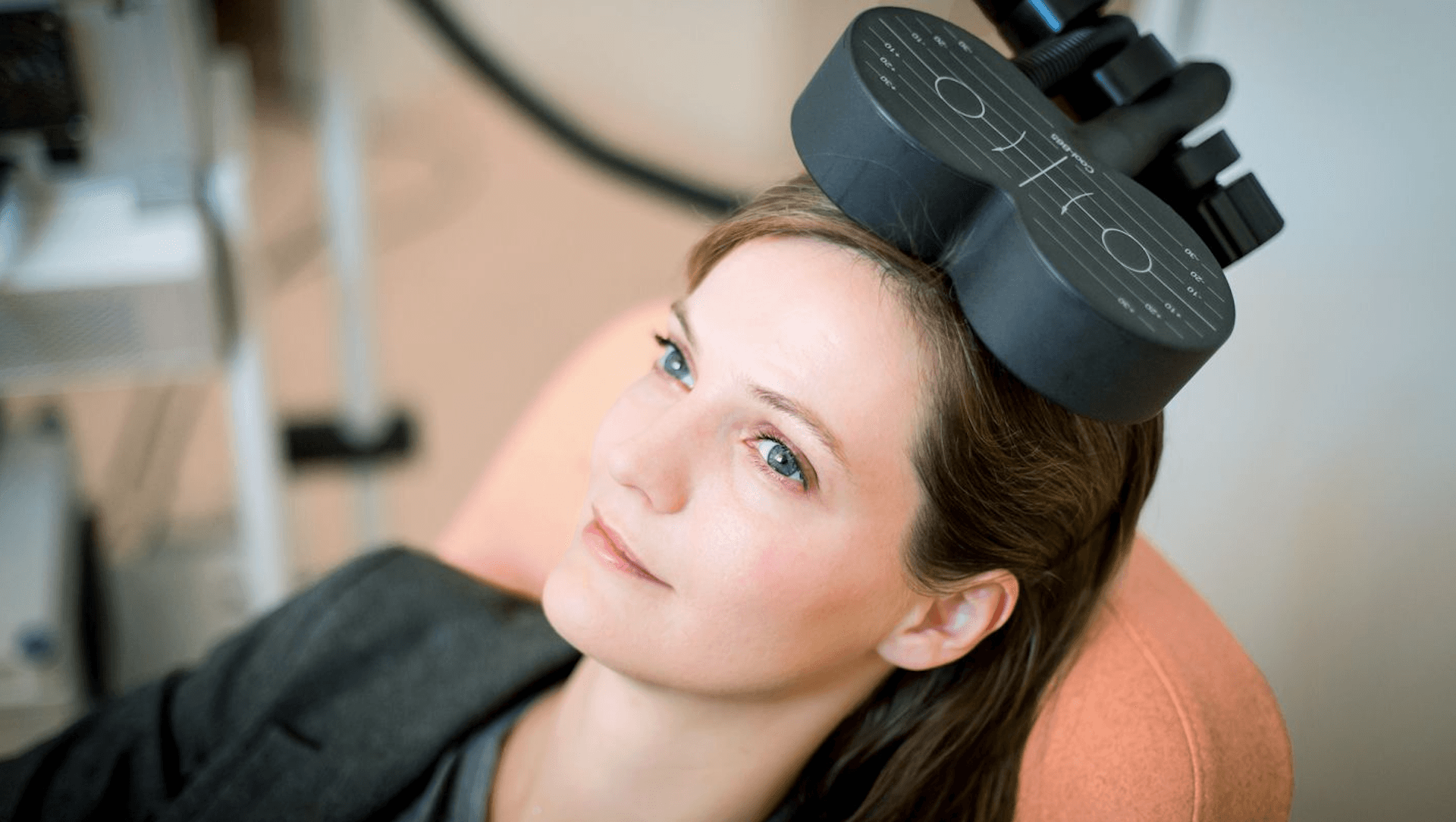TMS Therapy for OCD: What You Need to Know


Struggling with OCD? Learn how TMS therapy can help when other treatments fall short. Find the best TMS therapy near me for effective, drug-free relief today.
Living with OCD can feel overwhelming—persistent intrusive thoughts and compulsions can take over your daily life, making even simple tasks exhausting. When traditional treatments like medication and therapy don’t provide enough relief, you may start searching for alternatives. TMS therapy (transcranial magnetic stimulation) offers a non-invasive, FDA-approved option that has helped many individuals find relief from OCD symptoms.
At The Forge Recovery Center, we understand the challenges you face and are committed to helping you regain control of your life. If you're looking for the best TMS therapy near me, this guide will help. In this article, we will explore how TMS works, its benefits, and what to expect.
Understanding TMS Therapy

Transcranial magnetic stimulation (TMS) is a non-invasive, FDA-approved treatment that uses magnetic pulses to stimulate specific brain regions involved in mental health disorders. Unlike medications, which affect the brain through chemical changes, TMS directly targets the neural circuits responsible for conditions like obsessive-compulsive disorder (OCD), depression, and anxiety. This precision makes it a promising option for individuals who have not found relief with traditional treatments.
TMS therapy does not require sedation or surgery, and patients remain fully awake during treatment. It is delivered in an outpatient setting, making it convenient for those balancing recovery with daily responsibilities.
How TMS Works: Stimulating Brain Regions Linked to Mood Regulation
OCD is believed to stem from dysfunctional neural pathways—specifically, the overactivity of the cortico-striato-thalamo-cortical (CSTC) circuit in the brain. TMS therapy works by delivering repetitive magnetic pulses to target and regulate this overactive circuit, reducing OCD symptoms over time.
The magnetic pulses used in TMS therapy stimulate the dorsolateral prefrontal cortex (DLPFC) and other brain areas involved in mood, impulse control, and compulsive behaviors. Over multiple sessions, this stimulation helps retrain the brain, decreasing OCD-related distress and compulsions. Research from Stanford’s Brain Stimulation Lab and leading TMS providers like Greenbrook TMS show that individuals with OCD often experience symptom relief after several weeks of treatment.
FDA Approvals and Current Applications of TMS
TMS therapy was first FDA-approved for treatment-resistant depression in 2008 and later received approval for treating Obsessive-Compulsive Disorder (OCD) in 2018. Since then, it has been widely used for:
Major Depressive Disorder (MDD)
Generalized Anxiety Disorder (GAD)
Post-Traumatic Stress Disorder (PTSD)
Bipolar Depression
Substance Use Disorders (in emerging research)
With minimal side effects and a growing body of research supporting its effectiveness, TMS is becoming a go-to treatment for individuals struggling with mental health conditions that have not responded to traditional therapies.
At The Forge Recovery Center, we believe in personalized treatment approaches that integrate evidence-based solutions like TMS therapy to help you or your loved one achieve lasting mental wellness.
TMS Therapy for OCD
Obsessive-Compulsive Disorder (OCD) is a complex condition rooted in dysregulated brain activity, particularly in the cortico-striato-thalamo-cortical (CSTC) circuit. This circuit is responsible for managing intrusive thoughts, impulse control, and repetitive behaviors. In individuals with OCD, this pathway becomes overactive, leading to persistent, unwanted thoughts (obsessions) and compulsive actions as an attempt to reduce distress.
TMS therapy works by targeting and normalizing this overactivity. Specifically, the treatment focuses on the dorsomedial prefrontal cortex (DMPFC) and the anterior cingulate cortex (ACC)—two regions shown to be hyperactive in people with OCD. By delivering controlled magnetic pulses to these areas, TMS helps regulate abnormal brain activity, reducing compulsions and intrusive thoughts over time.
Clinical Evidence: How Effective Is TMS for OCD?
Multiple studies have demonstrated that TMS therapy is an effective treatment for OCD, particularly for those who have not responded to traditional therapies. Research published in the National Library of Medicine (PMC) found that:
Nearly 50% of individuals with OCD who underwent TMS therapy reported significant symptom reduction.
Patients experienced decreased activity in overactive brain regions, improving their ability to control intrusive thoughts.
Long-term improvements were observed in many patients, particularly those who completed a full course of treatment.
The FDA approved TMS for OCD in 2018, following clinical trials that showed substantial symptom reduction with minimal side effects. Unlike medications, which affect the brain’s chemistry, TMS directly targets the dysfunctional brain circuits, making it a highly targeted and effective approach.
How TMS Compares to Traditional OCD Treatments

For years, the standard treatments for OCD have been medication (SSRIs) and Cognitive-Behavioral Therapy (CBT). While these methods can be effective, they don’t work for everyone. Here’s how TMS compares:
Treatment: SSRIs (Selective Serotonin Reuptake Inhibitors)
How It Works: Increases serotonin levels to regulate mood and anxiety.
Effectiveness for OCD: Works for some but can take months to see results.
Limitations: Side effects include weight gain, nausea, fatigue, and sexual dysfunction. Some patients don’t respond at all.
Treatment: Cognitive-Behavioral Therapy (CBT)
How It Works: Helps individuals challenge and reframe obsessive thoughts.
Effectiveness for OCD: Considered the gold standard, but requires long-term commitment and therapist availability.
Limitations: Some individuals struggle to engage with or benefit from therapy alone.
Treatment: TMS Therapy
How It Works: Uses magnetic pulses to regulate hyperactive brain circuits linked to OCD.
Effectiveness for OCD: Studies show lasting symptom reduction for treatment-resistant OCD.
Limitations: Requires multiple sessions and availability of a trained provider. Not suitable for individuals with metal implants.
TMS is often used alongside therapy and medication, but for those who have not responded to SSRIs or CBT alone, it offers a drug-free alternative with fewer side effects.
At The Forge Recovery Center, we recognize that no two individuals experience OCD the same way. That’s why we offer personalized TMS treatment plans, helping you or your loved one regain control over their thoughts and behaviors.
Are You Struggling with Mental Health or Addiction?
We Can Help. Call Us Now!
CALL: 877-839-1772
What to Expect During TMS Treatment
If you're considering TMS therapy for OCD, knowing what to expect can help you feel more comfortable and confident in your decision. TMS is a non-invasive, outpatient procedure that doesn’t require anesthesia, allowing you to resume normal activities immediately after each session.
TMS Treatment Procedure: Duration, Frequency, and Setting
A standard TMS therapy session follows a structured process:
Session Duration: Each session lasts 30 to 45 minutes.
Frequency: Treatments are typically scheduled 5 days a week for 4 to 6 weeks.
Setting: Sessions take place in a comfortable outpatient clinic, where you remain awake and seated during the procedure.
During treatment, a trained specialist positions the TMS coil over a specific area of your scalp, delivering painless magnetic pulses to the brain regions linked to OCD. You may feel a light tapping sensation but no discomfort.
Personalized Treatment Plans: Why Individualized Care Matters
At The Forge Recovery Center, we recognize that no two individuals experience OCD the same way. That’s why personalized treatment is key to success. Before starting TMS therapy, you will undergo:
A comprehensive evaluation to determine the best stimulation targets for your specific OCD symptoms.
Custom treatment settings to ensure that the magnetic pulses are delivered at the optimal intensity for your brain’s activity.
Ongoing monitoring to track symptom improvements and adjust the treatment plan as needed.
By tailoring TMS therapy to your unique needs, we ensure the highest chances of long-term relief from OCD symptoms.
Potential Side Effects and Safety Considerations
TMS is considered a safe and well-tolerated treatment, especially compared to medications, which can cause systemic side effects. However, some mild and temporary side effects can occur, including:
Scalp discomfort or a light tapping sensation during treatment.
Mild headaches, which typically fade after the first few sessions.
Lightheadedness, in rare cases, which subsides quickly.
Serious side effects are extremely rare. However, TMS is not recommended for individuals with metal implants, pacemakers, or a history of seizures. Your provider will assess your medical history to ensure TMS is a safe option for you.
At The Forge Recovery Center, we prioritize your safety and comfort, ensuring that each session is conducted under expert supervision for optimal results with minimal risk.
Finding the Best TMS Therapy Near You
If you're considering TMS therapy for OCD, finding the right provider is essential to ensuring effective treatment and a positive experience. With many clinics offering TMS therapy, knowing what to look for can help you choose a reputable and experienced provider that meets your needs.
Using Directories and Resources to Locate Trusted TMS Providers
Several online directories and resources can help you find FDA-approved TMS providers near you. Some of the most reliable include:
BrainsWay – A trusted TMS provider directory featuring clinics that use advanced Deep TMS technology.
Psychology Today’s TMS Provider Directory – A search tool that helps locate licensed mental health professionals offering TMS therapy.
TMS Therapy Near Me – A website dedicated to helping individuals find board-certified TMS specialists across the U.S.
Hospital and university websites – Many leading hospitals and psychiatric research centers offer TMS therapy as part of their mental health programs.
Before scheduling an appointment, it's important to research each provider’s qualifications and patient reviews to ensure you're making an informed choice.
Key Factors to Consider When Choosing a TMS Provider
Not all TMS clinics are the same, and choosing the right provider can significantly impact your treatment success. When evaluating options, consider:
Provider Credentials – Ensure the clinic is staffed by board-certified psychiatrists and licensed TMS specialists with experience in treating OCD.
Technology Used – Some clinics use traditional TMS, while others offer Deep TMS (dTMS), which penetrates deeper brain structures for better results.
Clinic Environment – A calm, professional, and supportive setting can improve your treatment experience. Visit the clinic beforehand or schedule a consultation to assess its atmosphere.
Patient Reviews & Testimonials – Reading reviews from previous patients can give insight into treatment effectiveness, staff professionalism, and overall experience. Look for providers with consistent positive feedback.
Insurance & Payment Options – Check if your insurance covers TMS therapy and ask about payment plans if needed. Some clinics offer financing options to make treatment more accessible.
Consulting with Healthcare Professionals Before Starting TMS
Before committing to TMS therapy, it's essential to consult with a mental health professional to determine if it's the right fit for your needs. While TMS is highly effective for many, it may not be suitable for everyone.
A qualified healthcare provider can:
Assess your medical and psychiatric history to ensure TMS is safe for you.
Evaluate your previous treatments and whether TMS could be a better alternative.
Discuss realistic expectations and how TMS fits into your broader mental health treatment plan.

At The Forge Recovery Center, we provide personalized consultations to help you determine if TMS therapy is the right option for your OCD treatment journey. Our expert team is here to guide you every step of the way, ensuring you receive the best care possible in a supportive environment.
Are You Struggling with Mental Health or Addiction?
We Can Help. Call Us Now!
CALL: 877-839-1772
OCD Controlling Your Life? We’ll Help You Take It Back
OCD can feel like an endless cycle of intrusive thoughts and compulsive behaviors, but TMS therapy offers a proven, non-invasive solution for those who haven't found relief with traditional treatments. Backed by research, TMS helps rewire overactive brain circuits, reducing OCD symptoms and improving quality of life.
If you're struggling and searching for the best TMS therapy near me, The Forge Recovery Center is here to help. Our expert team provides personalized treatment plans to guide you toward lasting recovery. Don’t wait—reach out today and take the first step toward healing.
Are You Struggling with Mental Health or Addiction?
We Can Help. Call Us Now!
CALL: 877-839-1772





